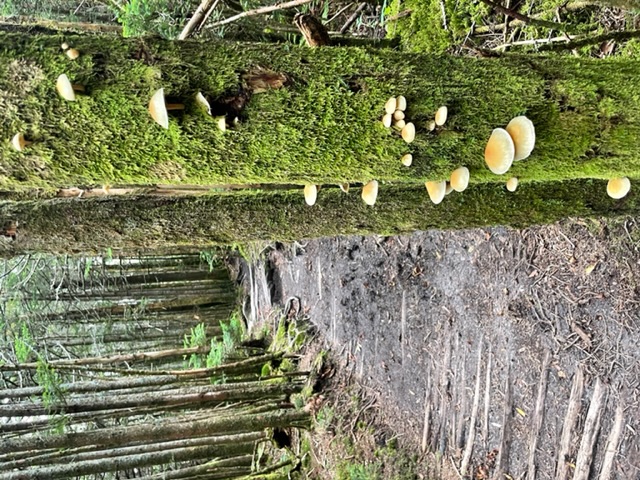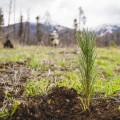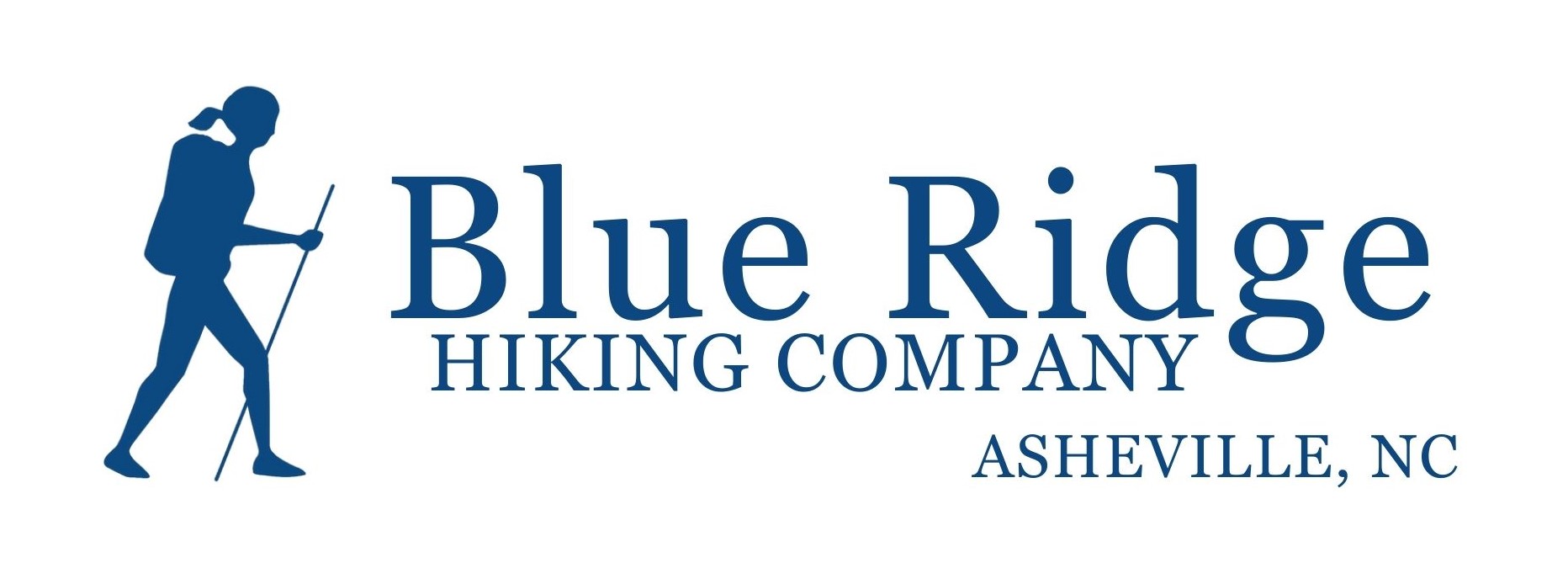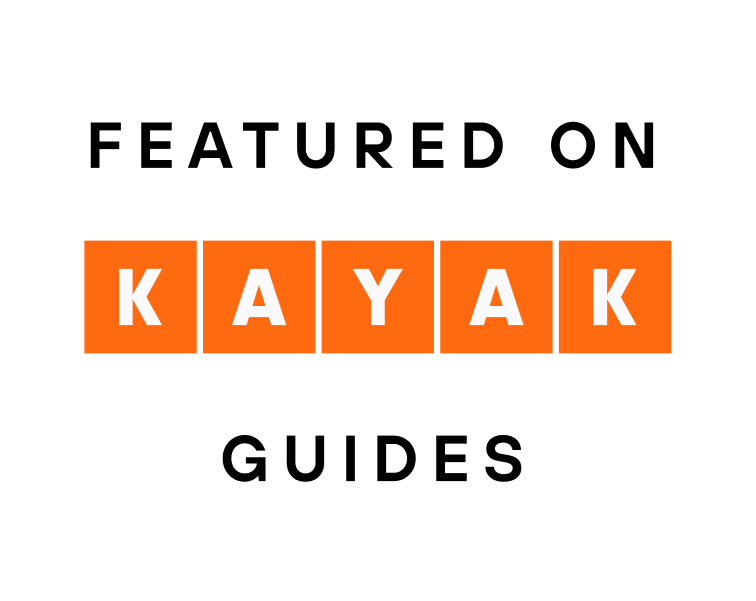 To those who set out to thru hike a long-distance trail - like the Appalachian Trail - and make it 500 miles or 1500 miles but do not complete the entire trail, you IN NO WAY FAILED. On the contrary, you hiked some number of miles that you would never have experienced if you had not ventured to set foot on the trail. Any forward motion is an accomplishment in some way.
To those who set out to thru hike a long-distance trail - like the Appalachian Trail - and make it 500 miles or 1500 miles but do not complete the entire trail, you IN NO WAY FAILED. On the contrary, you hiked some number of miles that you would never have experienced if you had not ventured to set foot on the trail. Any forward motion is an accomplishment in some way.
We have been undergoing a yearlong sustainability initiative at Blue Ridge Hiking Company. We started strong and used each month to review and access a different aspect of our business. Our progress on the initiative slowed during the summer and we are pushing pause for the fall. Why? Because we have a lot of great hikes and events on the schedule, we are starting to feel the fatigue of an awesome and fun season, and instead of pushing and breaking we are slowing and bending and focused on long term changes over immediate gains. Because… isn’t that what sustainability is all about?!
Just like one of our guests who needs to exit a backpacking trip early, we are going to celebrate what we accomplished as opposed to focusing on what can come back and be experience another day. So here’s a brief overview of some of the changes we have made throughout 2022.
Staff – Our Team was TIRED after two years of offering experiences during a pandemic. This past off-season we intentionally tried to “take a breath” and only implement new strategies or technologies that would make our work easier and more efficient in 2022. As part of that, we hired more support staff and increased flex time for working out of the office. And, our manager, who has carried the majority of the weight over the past two years, is taking a two month break this fall to hike the Mountains to Sea Trail. We are so excited for her!
Pay – Even before inflation went bananas we decided to increase our staff and guide pay. Our thought was that if we have the best guides in the region (which we whole heartedly believe)then they should also be paid the best. This is part of what has allowed us to retain 100% of our guide staff throughout the entire season, which in turn makes our admin jobs easier and helps create feelings of consistency, value, and appreciation within our company culture.
Vehicles/Transportation – Drive Less. Hike More. By adding a vehicle to our fleet with more passenger capacity we are able to drive one van for our bigger groups as opposed to multiple vehicles. Another car, also allows guides to self-shuttle to many of our backpacking locations reducing our gas and drive-time by 50%. We also created a carpool waiver for any guests/guides who want to carpool for times when transportation included as part of the excursion.
Shop – Lightweight gear is great, but what if it falls apart quickly? What if the product is made overseas which increases carbon the carbon footprint and means that inventory is still sitting on a freight ship in the Pacific? What if the person/company we are buying from are difficult or unpleasant to work with? How do you decide when it’s worth it and when it’s not? To help our shop products better align with our company values we created a matrix that helps us decide whether or not an item belongs in our inventory. Categories include: proximity of production, overall performance, environmentally friendly construction, durability, working with companies who care (i.e. give back) and are inclusive, working with company reps/soloprenuers/local crafters/artists who are awesome and easy to work with, product sales/margins, and there are bonus points for Women owned and BIPOC businesses. Do all of our products check off all of these boxes? NO! Very few do, but the matrix helps us rank different options and decide the best fit for our business and customers.
Non-Profit Partners – Small Businesses get asked for a lot of donations – a lot. Every month there are several requests for support and donations and 99% of the time they are for a really great cause. Still, we have learned over time, that small donations to different organizations throughout the year are less impactful that more substantial contributions to long-term partners. This year we identified our non-profit partners at the beginning of the year: Carolina Mountain Club and The National Forest Foundation. And through these ongoing relationships we volunteer trail maintenance hours in the places where we guide trips and we plant a tree for every guest that comes on one of our trips.
Community Partners – Similar to having a bigger impact through more intentional relationships with our nonprofit partners we also put more focus into sustaining positive, long term, relationships with our partners in the business community. This includes an ongoing membership with the Asheville Chamber, partnering with the travel partners/planners group Accents on Asheville, seasonal visits with the downtown hotels and partnerships with Asheville’s original craft brewery – Highland.
Trail-er – We have looked at ways to make our bunkhouse on the Appalachian Trail in Hot Springs better and more environmentally friendly. We made some small tweaks here and I want to give a big shout-out to our caretaker and guides who often lug bags of recycling to Asheville or personally sort it at their houses when due to timing and or materials it is not possible to have it recycled in Madison County.
Food – We submitted an application for our Trail-er to be a food processing facility so that we can combine single ingredient dehydrated foods into camp meals so we can incorporate more healthy and local ingredients into our backpacking menus. Still waiting to hear back on this one…
 So are we exactly where we want to be? No!
So are we exactly where we want to be? No!
Have we made a bunch of progress since last December? Yes!
Are we committing to continuing to get better over time? Yes!
When folks have to quit or put off an adventure unexpectedly, our common quip is, “Don’t worry. The trail isn’t going anywhere.” This feels the same. We are slowing our progress this fall and shifting our focus towards finishing the season strong with the trips and initiatives we have in place, but we look forward to picking this work back up when we enter our “off-season” because if we have learned anything this year it is that sustainability is not a sprint; it is a commitment to consistently improve over time.









Comments
Jan Z
October 3, 2022 - 3:28pm
You folks are the best. Thank you for the inspiration, as always!